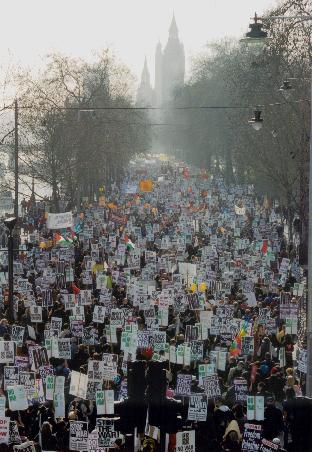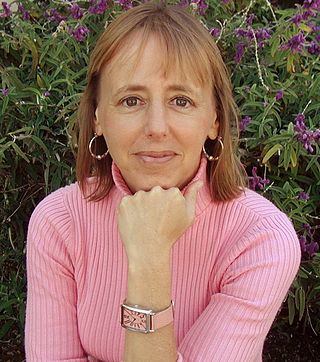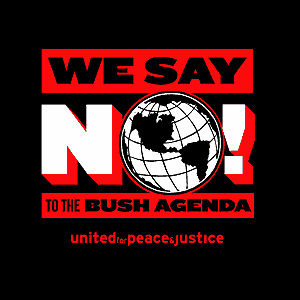
Kofi Atta Annan was a Ghanaian diplomat who served as the seventh secretary-general of the United Nations from 1997 to 2006. Annan and the UN were the co-recipients of the 2001 Nobel Peace Prize. He was the founder and chairman of the Kofi Annan Foundation, as well as chairman of The Elders, an international organisation founded by Nelson Mandela.

The Liberation Tigers of Tamil Eelam was a Tamil militant organization that was based in northeastern Sri Lanka. The LTTE fought to create an independent Tamil state called Tamil Eelam in the north-east of the island, due to the continuous discrimination and violent persecution against Sri Lankan Tamils by the Sinhalese dominated Sri Lankan Government.

Peace is a concept of societal friendship and harmony in the absence of hostility and violence. In a social sense, peace is commonly used to mean a lack of conflict and freedom from fear of violence between individuals or groups.

Pacifism is the opposition or resistance to war, militarism or violence. Pacifists generally reject theories of Just War. The word pacifism was coined by the French peace campaigner Émile Arnaud and adopted by other peace activists at the tenth Universal Peace Congress in Glasgow in 1901. A related term is ahimsa, which is a core philosophy in Indian Religions such as Hinduism, Buddhism, and Jainism. While modern connotations are recent, having been explicated since the 19th century, ancient references abound.

The Revolutionary Armed Forces of Colombia – People's Army is a Marxist–Leninist guerrilla group involved in the continuing Colombian conflict starting in 1964. The FARC-EP was officially founded in 1966 from peasant self-defense groups formed from 1948 during the "Violencia" as a peasant force promoting a political line of agrarianism and anti-imperialism. They are known to employ a variety of military tactics, in addition to more unconventional methods, including terrorism.

Beginning in late 2002, and continuing after the 2003 invasion of Iraq, large-scale protests against the Iraq War were held in many cities worldwide, often coordinated to occur simultaneously around the world. After the biggest series of demonstrations, on February 15, 2003, New York Times writer Patrick Tyler claimed that they showed that there were two superpowers on the planet: the United States and worldwide public opinion.

Peace churches are Christian churches, groups or communities advocating Christian pacifism or Biblical nonresistance. The term historic peace churches refers specifically only to three church groups among pacifist churches:

Medea Benjamin is an American political activist who was the co-founder of Code Pink with Jodie Evans and others. Along with activist and author Kevin Danaher, she created the fair trade advocacy group Global Exchange. Benjamin was the Green Party candidate in California in 2000 for the United States Senate.

United for Peace and Justice (UFPJ) is a coalition of more than 1,300 international and U.S.-based organizations opposed to "our government's policy of permanent warfare and empire-building."

The Guantanamo military commissions were established by President George W. Bush – through a military order – on November 13, 2001, to try certain non-citizen terrorism suspects at the Guantanamo Bay prison. To date, there have been a total of eight convictions in the military commissions, six through plea agreements with the defendants. Several of the eight convictions have been overturned in whole or in part on appeal, mostly by U.S. federal courts.

The World Peace Council (WPC) is an international organization with the self-described goals of advocating for universal disarmament, sovereignty and independence and peaceful co-existence, and campaigns against imperialism, weapons of mass destruction and all forms of discrimination. Founded from an initiative of the Information Bureau of the Communist and Workers' Parties, WPC emerged from the bureau's worldview that divided humanity into Soviet-led "peace-loving" progressive forces and US-led "warmongering" capitalist countries. Throughout the Cold War, WPC operated as a front organization as it was controlled and largely funded by the Soviet Union, and refrained from criticizing or even defended the Soviet Union's involvement in numerous conflicts. These factors led to the decline of its influence over the peace movement in non-Communist countries. Its first president was the French physicist and activist Frédéric Joliot-Curie. It was based in Helsinki, Finland from 1968 to 1999, and since in Athens, Greece.

The proposed invasion of Afghanistan prompted protests with mass demonstrations in the days leading up to the official launch of the war on October 7, 2001. The continuation of the war in Afghanistan from 2001 to 2021 lead to further protest and opposition to hostilities.
Peace Action Wellington (PAW) is a left-wing activist organisation based in Wellington, New Zealand primarily known for their opposition to western intervention and military involvement around the world, advocacy for indigenous rights, and capitalism. With support from members of the Green Party of Aotearoa New Zealand, the group is also linked to other local activist groups. Peace Action Wellington is affiliated with the American Peace Action group.
Reactions to the 2006 Lebanon War came from states on all continents, supranational bodies, individuals and international NGOs, as well as political lobbyists in the United States.
The threat of terrorism in Kazakhstan plays an increasingly important role in relations with the United States which in 2006 were at an all-time high. Kazakhstan has taken Uzbekistan's place as the favored partner in Central Asia for both Russia and the United States. Kazakhstan's counter-terrorism efforts resulted in the country's 94th ranking among 130 countries in the 2016 Global Terrorism Index published by the Institute of Economics and Peace. The higher the position on the ranking is, the bigger the impact of terrorism in the country. Kazakhstan's 94th place puts it in a group of countries with the lowest impact of terrorism.

Student Peace Action Network or SPAN is the student wing of Peace Action. [1] It is also a coordinating committee member of the National Youth and Student Peace Coalition (NYSPC). [2] SPAN works to end U.S. militarism, nuclear weapons, weapons trafficking, and “the complex webs of corporate and military power that perpetuate racism, damage the environment, deprive people of basic needs, and violate human rights.” [3]It currently has over 130 chapters and affiliates.

The War in Afghanistan was an armed conflict from 2001 to 2021. It began when an international military coalition led by the United States launched an invasion on Afghanistan, toppling the Taliban-ruled Islamic Emirate and establishing the internationally recognized Islamic Republic three years later. The conflict ultimately ended with the 2021 Taliban offensive, which overthrew the Islamic Republic, and re-established the Islamic Emirate. It was the longest war in the military history of the United States, surpassing the length of the Vietnam War (1955–1975) by approximately 6 months.
Win Without War is a public education and advocacy coalition based in Washington, D.C. Founded in 2002 in the runup to the Iraq War, Win Without War remains active as a coalition of national, multi-issue organizations dedicated to advancing progressive national security solutions. The coalition comprises 37 national organizations including MoveOn.org, CREDO Action, the Council for a Livable World, and the NAACP. Win Without War is a program of the Center for International Policy.
Harmeet Singh Sooden is a Canadian-New Zealand anti-war activist who volunteered for the international NGO Christian Peacemaker Teams in Iraq. He was held captive in Baghdad with three others for almost four months until being freed by multi-national forces on 23 March 2006.














